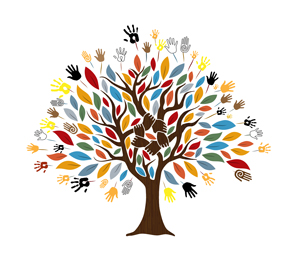Abid Jan
A bank account for any organization is a must-have, and non-profits are no exception. However, recently some major banks in Canada have told an increasing number of Muslim charities to find new homes. The unfair scrutiny by the banks is just one aspect of the lack of integration of the Muslim charities in the broader social services sector.
This is a wake-up call both for the Muslim charities and the mainstream social services sector. We know that resource are in limited supply for social services and issues regarding equity and opportunity are deepening by the day. It is time to identify elements for bridging the gap between the social services sector and Muslim organizations for building resilient communities.
We have successful protype of this collaboration between the faith community and social sevice organization in the form of Hollyer House in Bells Corners. To mainstream this approach, Muslim organizations and their counterparts in the social service sector need to start with low hanging fruit and explore areas for collaboration and coordination.
For example, the social services sector has the expertise, knowledge and skills whereas Muslim religious institutions are already a critical dimension of life for Muslim Canadians who are concerned about their communities—as staff, volunteers, and ‘beneficiaries.’ The area for collaboration is around need is for Muslim organizations to become more than just places for worship.
Interestingly, these places fuse belief, faith, and action into an indivisible whole and produce what sociologists describe as ‘social capital.’ Many of these organizations in Ottawa are located in vulnerable communities. The silos in which the faith-based and mainstream social services sector operate, however, make the quest for a new type of conversation between these two entities a most urgent need.
Having worked closely with organizations in both the religious and social services sector, we are confident that there is room and potential to create meaningful dialogue that will allow organizations on each side to challenge and learn from one another, strength each other and collaborate on joint community safety and development initiatives.
The local Muslim community, for example, has the necessary potential to double the existing number of community services centres in Ottawa. However, bound by their limited mandates, Muslim organizations have typically felt that offering spiritual services alone was their goal, with little consideration given to community development and serving the community at large.
With notable exceptions of fundraising for victims of major environmental disasters, Muslim organizations have limited their capacity to relying mainly on volunteering and offering few programs for Muslims. Canada is our home. Muslims are increasingly feeling proud of being part of the larger community. United Muslim Organizations of Ottawa and Gatineau is a unique collaborative of the Muslim organizations that extends beyond the limited scope of Muslim organisation. However, their linkage to funders and social service sector organizations for community development partnerships remains limited for some obvious organizational and professional capacity reasons.
Many the local issues, from youth homelessness and helping children and youth to succeed in life, to the challenges faced by vulnerable seniors and the least equitable neighbourhoods, for example, remain poorly understood by Muslim organizations, and much less agreed upon in terms of playing a role to contribute.
Most large Muslim organizations can contribute immensely—from offering their facilities for programming, to galvanizing and popularizing the moral commitment to community priority goals, translating them into the idioms of the faith, and mobilizing support for community initiatives that contribute to our common community development goals. In this way, many Muslim organizations have the potential to integrate in the broader sector and function as full-fledged community resource centres.
Muslim organizations in Ottawa are varied in their capacity, organizational structures, and the way they work with beneficiaries, partners, or other actors. What is common, however, is the extent to which Islam provides the impulse for action to serve humanity without any distinction.
The convergence of faith and community development is highly recommended, but we also need to consider that Muslim organizations have much homework to do.
Steps to be taken
At a bare minimum, Muslim organizations with immense potential to function as community resource centres can begin with:
- Adjusting physical infrastructure to create office spaces for staff and places to deliver social programs.
- The mindset of having these entities serving religious and spiritual needs only is evident from the fact that some of these multi-million dollars facilities have one or two office spaces for spiritual leaders in the original building design.
- Developing long-term organizational vision and mission that involves offering cultural and religious services to members of the congregation while also benefiting the community at large.
- This can be achieved by working in partnership with the social services sector.
- Making their leadership truly professional, diverse, and representative, beginning with diversifying their boards, engaging Canadian born and raised youth – avoiding the concept of “closed boards” with unelected directors appointed for indefinite terms of office.
- Investing in human resources. Engaging professional staff to run programs and services and guide the volunteers.
- Reaching out to local Community Health and Resource Centres to explore partnership opportunities on community initiatives.
Asking whether faith-based organizations should have a role in development work in Ottawa is redundant. Many organizations are already doing the same elsewhere in Canada and internationally. There is a broad-based agreement that the world’s faith communities have an essential role in pursuing the UN Sustainable Development Goals.
If we strengthen the commonalities between social services and faith-based organizations, while imagining a broadened scope of how religious organizations can provide social value, we stand to benefit from increased cohesion and community wellbeing.

